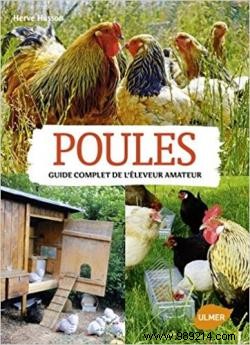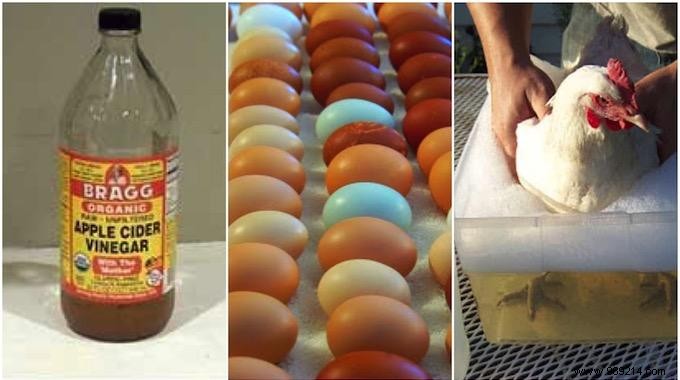
I recently noticed that I was taking quite a bit of vinegar.
From the moment you want to do without harmful products, vinegar appears at the top of the list!
I use it to make fabric softener, to clean the windows, as a limescale remover, to descale the coffee maker, to remove weeds, and even as a conditioner!
As you know, there are several types of vinegar:white vinegar, red wine, malt, balsamic, apple cider, etc.
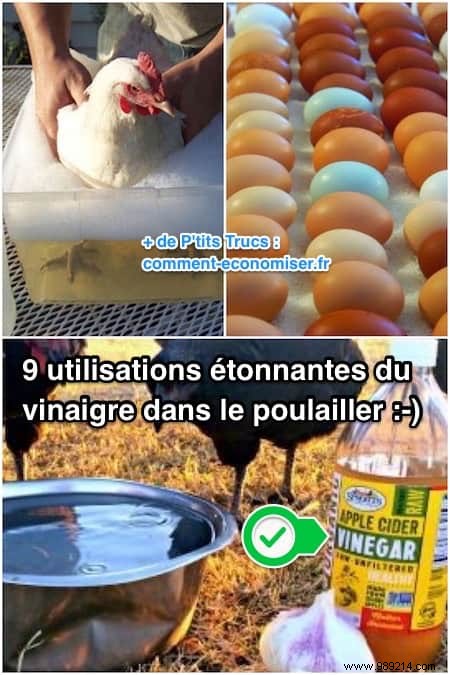
Apple cider vinegar in particular has many health benefits.
I remember my grandmother drinking it diluted to cure her sore throat. She said "it cuts the cold and it clears the sinuses".
And then, I quickly understood that vinegar is also very useful when you have chickens.
So here are 9 uses for vinegar in the chicken coop. Watch:
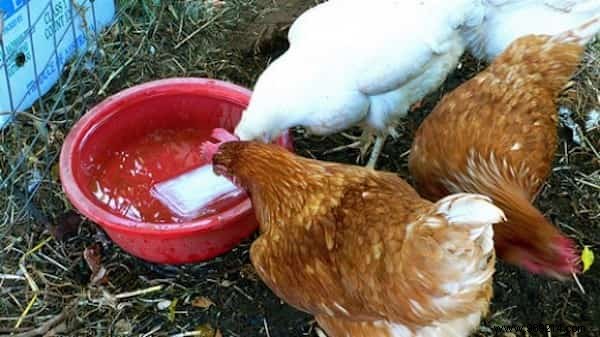
Consider adding vinegar to the chickens' water. Why ? Because like my grandmother, it's great for their respiratory system. Indeed, vinegar has antibiotic and acetic properties that eliminate bacteria. It also helps to naturally maintain a healthy digestive system, boosts the immune system and helps fight against dehydration during hot weather. Just add a few tablespoonsof apple cider vinegar at the drinking troughs so that the hens benefit from these benefits. Remember to reapply every few days.
Warning: do not use vinegar in metal containers. It breaks down metal, which generates chemicals in drinking water.
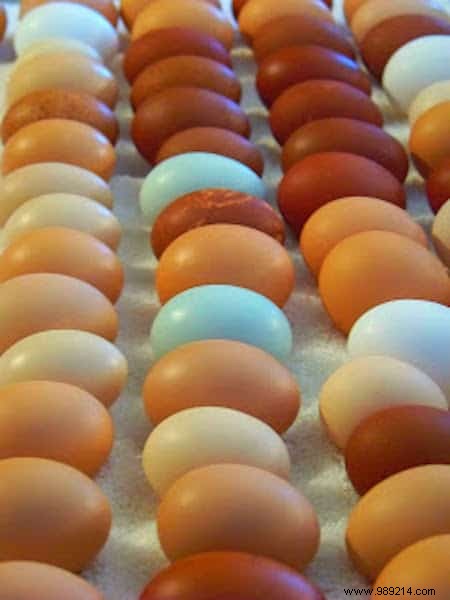
Want your eggs to be flawless? Immerse them for 10 seconds in warm white vinegar . This helps bring out the beautiful color of the shell. It also helps remove stains and loosen dirt from the shell.
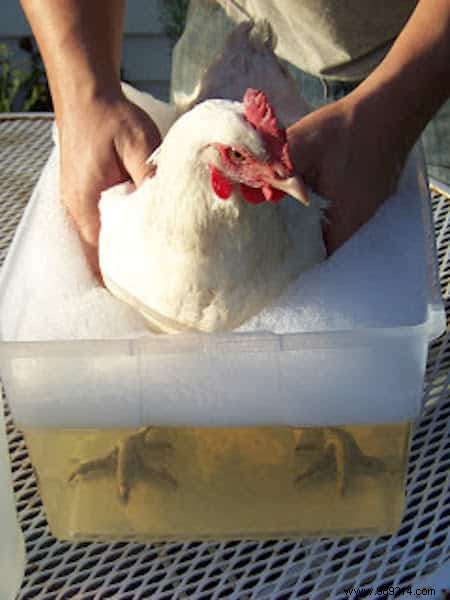
Giving hens and chickens a good bath once in a while is a good thing to do to keep them healthy. Also remember to add a little cider vinegar with rinsing water. This removes soap residue, cleanses the skin and feathers and prevents infestations of parasitic insects.
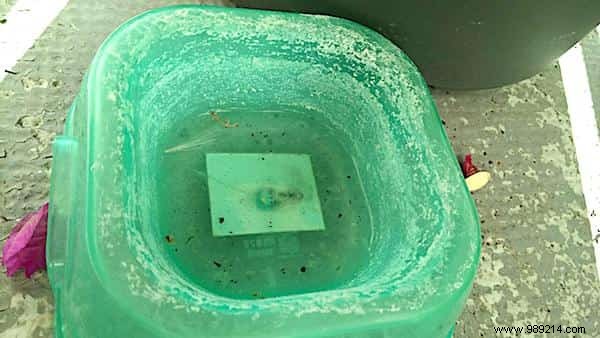
Depending on the region, the water is more or less calcareous. This forms scale on the drinkers. As the water evaporates, the limestone dries out and becomes rock hard. This porous, rough surface is a place where bacteria grow quickly. To remove it easily, simply add a little white vinegar in the container, leave to stand for a few minutes and rub with a sponge. Then just wash the bowl as usual with soap and water.
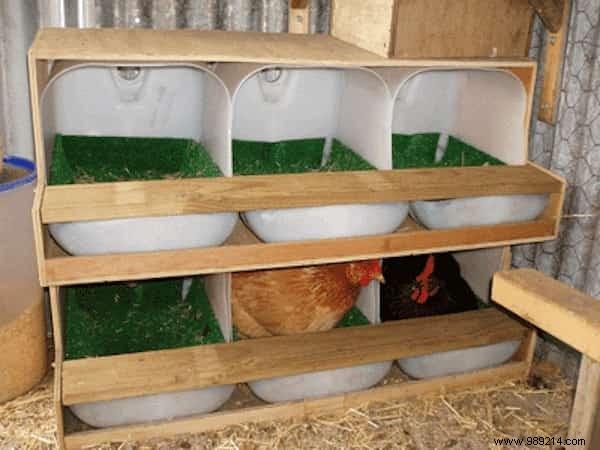
After cleaning the chicken coop, it is important to spray white vinegar on the nesting boxes and the walls of the hen house to ensure perfect disinfection. Why ? Because it prevents mites, lice and other parasites from settling in the chicken coop. In addition, vinegar also deodorizes and disinfects without using chemicals. As white vinegar has bleaching properties, it also dissolves dried egg yolks in case eggs have broken in a nest box.

The cleaning of the hens is very important for their hygiene. The vinegar helps soften the dead skin around the hens' legs. This prevents fungus under the nails and infections due to small cuts. A diluted mixture of white vinegar and hot water can be applied as a compress for about 3 min. You can also soak the hen's feet in a shallow basin of vinegar water. Then, scrub your hen's feet with a stiff bristle brush, rinse and apply a light coat of petroleum jelly to soothe and prevent insects from coming on them.
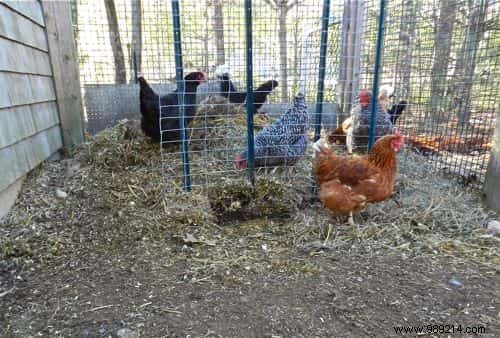
Vinegar also helps clean tough areas, such as fences and chicken coops. It is very useful for cleaning in the cracks and crevices of the walls which can be soiled. It also helps to clean the rims of drinkers. You can also spray white vinegar in cages that received quarantined birds. Finally, you can also disinfect the reusable bins where the chicks are nursed. Wipe them with a vinegar sponge to disinfect them when the chicks are outside.
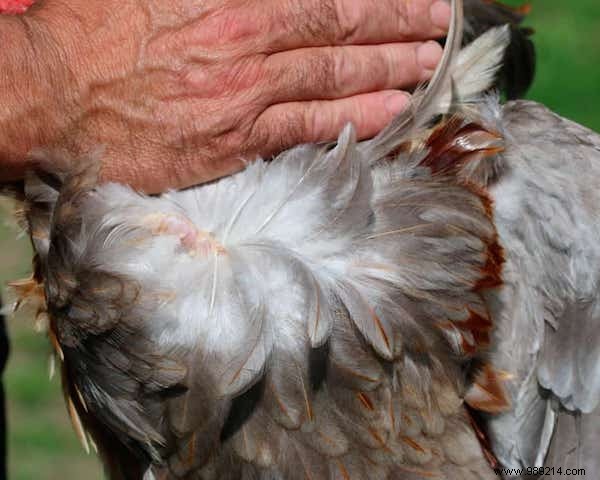
Many commercial products exist to eliminate parasites from poultry. Unfortunately, these products contain chemicals that are dangerous to your health and that of the hens. If you have a heavy pest infestation, you may need to use it. But my philosophy is to start with prevention. Twice a week, I spray a little vinegar water near the neck, thighs and under the wings, alternating with baths of diatomaceous earth. It helps to control and repel pests very effectively. It's natural and effective.
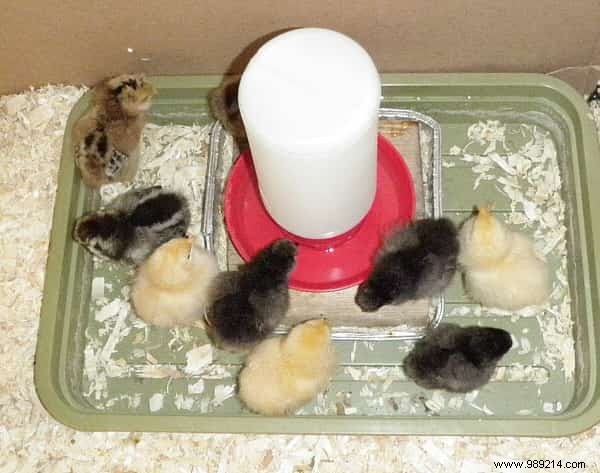
After the chicks hatch, the incubator is dirty and smells bad. White vinegar is an excellent anti-odor:it reduces odors but also disinfects and removes mold naturally. I also use 70° alcohol to clean the incubator motor with a cotton swab. The alcohol evaporates quickly, so it's practical not to damage it.
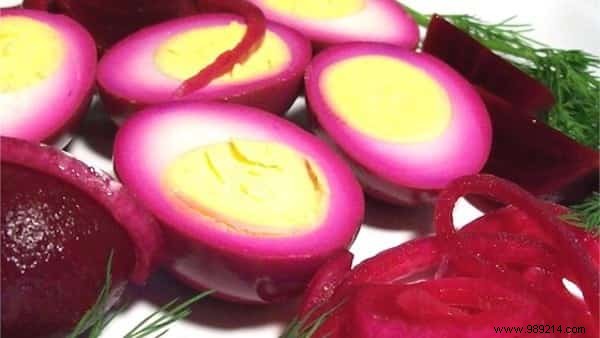
I love using vinegar to marinate eggs! It is succulent with beets for example. They give their beautiful color to the eggs, it's nice for a nice starter.
Recipe for 8 eggs: first make hard-boiled eggs, let them cool then remove the shell. Put in a glass jar 450 g of beets, 1 onion cut into rings and the hard-boiled eggs. In a separate saucepan, put 200 g of sugar, as much beetroot juice, 230 ml of cider vinegar , salt, pepper, and Provencal herbs. Heat over low heat for 5 minutes. Then pour into the pot over the eggs. Put in the fridge for 48 hours before eating it. You can also mix them with other vegetables, it's a great way to preserve all the eggs produced in your chicken coop.
If you want to raise chickens at home, I recommend this book which gives good advice:
